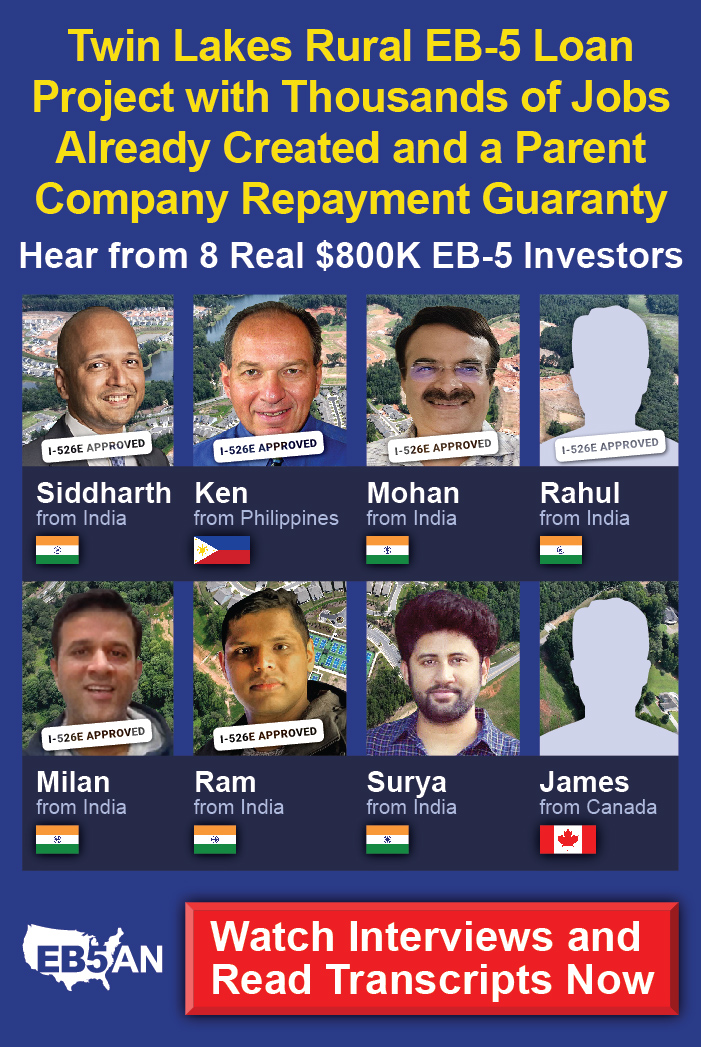In this article, we survey the various paths for foreign nationals to become permanent residents of the US.
Obtaining a US Green Card
The Advantages of a US Green Card
Requirements for Green Card Applicants
The Immigrant Visa Programs
Green Card Ineligibility
New Green Card Regulations
The Value of a Green Card
Obtaining a US Green Card
A US green card grants foreign nationals permanent residency in the United States, allowing them to live, work, study, and live wherever they choose. A green card is also a prerequisite for obtaining US citizenship, an end goal for numerous immigrants.
The number of immigrant visas available each year is limited, and immigration to the US has become increasingly popular thanks to the country’s high standard of living.
The wait times for green card applicants can be very lengthy due to the high demand. However, some routes to permanent residency are much faster than others.
Multiple green card programs have been established to grant as many foreign nationals as possible a chance to immigrate.
Below, we provide further details on each program; this overview will help potential immigrants make an informed decision on how to get a green card in the US.
The Advantages of a US Green Card
Unlike holders of temporary work visas, which expire fairly quickly, Lawful Permanent Residents (LPRs)—that is, green card holders—can possess their status for life. LPRs receive many benefits along with their immigrant visa. They are able to:
- Live and work anywhere in the US.
- Get a driver’s license.
- More easily obtain a business or commercial license.
- Some green card holders are eligible for Medicare and other government benefits.
- Sponsor family members for green cards.
- Some green card holders are eligible for a Social Security number.
- Attend higher education and receive financial aid at a much lower cost.
- Vote in a limited capacity.
- Apply for US citizenship five years after obtaining permanent resident status.
Once an immigrant has permanent resident status, they must generally renew their green card every 10 years. It is mandatory for permanent residents to keep their green card on hand at all times for identification purposes.
Requirements for Green Card Applicants
Each green card program comes with its own basic requirements, but these are some of the most common:
- Birth, marriage, and divorce certificates.
- Photographs.
- Biometric information.
- Good physical health.
- A clean criminal record.
- Financial statements.
- Academic history.
- Filing and processing fees.
- Remaining physically present on US soil for six months of every year.
Green card applicants would do well to consult with a qualified immigration attorney to ensure compliance with all the applicable requirements.
The Immigrant Visa Programs
The following are the United States Citizenship and Immigration Services (USCIS) green card eligibility categories.
Green Cards Through Family Members Sponsorship
The family of a US green card holder or citizen is eligible to apply for an immigration visa. Spouses and dependent children can get their own green card through the sponsorship of a family member who holds a green card. Siblings, parents, and married children are allowed to apply only if their family member is a US citizen.
This is the fastest and easiest way to get a green card, especially for immediate relatives.
Family Preference Categories
The preference categories for marriage-based green card approval are:
- First Preference: Unmarried children over 21 of US citizens.
- Second Preference (2a): Unmarried children under 21 and spouses of permanent residents.
- Second Preference (2b): Unmarried children over 21 of permanent residents.
- Third Preference: Married children of US citizens.
- Fourth Preference: Siblings of US citizens. (In this case, the citizen must be over 21.)
Marriage-Based Application Forms
To obtain a Green Card for their spouse, a US citizen or green card holder can file Form I-130, Petition for an Alien Relative, followed by Form I-485, Application to Register Permanent Residence or Adjust Status.
If the applicant’s spouse does not reside in the United States at the time of filing, they must go through consular processing through their US consulate or embassy.
Widows and widowers of a US citizen are also eligible to apply for a green card. They must submit Form I-360, Petition for Special Immigrants, Amerasians, Widows or Widowers, as well as Form I-485.
Green Cards Through Employer Sponsorship
Foreign nationals can obtain green cards as an immigrant worker through investment in a qualified US business, an offer of permanent employment, or exceptional ability. Employment-based visas are a popular alternative for foreign nationals who are not eligible for the family-based categories.
Employment Based Preference Category
The five employment-based visa preference categories cover a wide range of possible candidates. Here is a look at each one:
- EB-1 First Preference: Persons of extraordinary ability, outstanding professors and researchers, and multinational executives or managers.
- EB-2 Second Preference: Persons of exceptional ability, exceptional teachers and scientists, and professionals with advanced degrees.
- EB-2 Second Preference with National Interest Waiver (NIW): Persons of exceptional ability or possessing an advanced degree who are involved in activities greatly benefiting US national interest.
- EB-3 Third Preference: Professionals with a bachelor’s degree or foreign equivalent, or skilled and unskilled workers.
- EB-4 Fourth Preference: Religious workers, doctors and physicians, media personnel, Iraqi and Afghani translators, members of the US military, Special Immigrant Juveniles (SIJs), victims of domestic battery, and applicants for shortage positions.
- EB-5 Investment-Based: Foreign nationals who have invested a minimum of $800,000 or $1,050,000, depending on location, into a US business that will produce and sustain 10 full-time jobs for two years.
Employment-Based Application Forms
Foreign nationals already working and living in the US can be sponsored by their employer.
The employer will be the one to file Form I-140, Immigrant Petition for Alien Workers, on behalf of the foreign national and must have already obtained a Permanent Foreign Labor Certification from the US Department of Labor.
Those who choose the EB5 investment route must submit Form I-526, Immigrant Petition by Alien Entrepreneur, after making their investment.
Upon approval, they will file Form I-485 or DS-260, depending on whether they already live in the US, to receive Conditional Lawful Permanent Residency (CLPR). After two years, they must file Form I-829, Petition by Investor to Remove Conditions on Permanent Resident Status, in order to receive a permanent green card.
Green Cards for Special Immigrants
Special immigrants fall into the following categories:
- Spiritual leaders and religious workers.
- Permanent residents who have left the US for more than a year.
- Medical graduates.
- Special Immigrant Juveniles.
- Broadcasters.
- Afghans and Iraqis employed by the US government.
- Employees of international organizations and their relatives.
To start the application process as a special immigrant, a foreign national must submit Form I-360, Petition for Special Immigrants, Amerasians, Widows or Widowers, to United States Citizenship and Immigration Services with all supporting documents.
Green Cards through Refugee or Asylee Status
Anyone subject to persecution or with good reason to fear for their lives is permitted to enter the US through refugee or asylum status. Refugee status is for those outside of the US when seeking entry, and asylum status is for refugees already within the country.
Both must submit Form I-589, Application for Asylum and for Withholding of Removal to USCIS.
Asylees are eligible to apply for permanent residency after one year of holding such status. However, it is mandatory for refugees to apply for a green card after one year. In order to receive lawful permanent resident status, they must file directly for I-485 adjustment.
Within two years, both may petition for their spouses and children under 21 to receive refugee or asylee status by filing Form I-730, Refugee/Asylee Relative Petition.
Green Cards for Human Trafficking and Crime Victims
T Non-Immigrant Visas
Victims of human trafficking with a T-1 non-immigrant visa from USCIS are permitted to apply for long-term permanent residence. The family of the victim is also eligible once they have obtained a T2 (for spouse), T3 (child), T4 (parent), or T5 (sibling) non-immigrant visa through the T-1 visa-holding relative.
U Non-Immigrant Visas
Victims of serious crimes can get a green card once they have secured a U-1 non-immigrant visa. The spouse of the victim can receive a U-2 visa, the child can receive a U-3, the parents a U-4, and siblings a U-5.
Those with T and U non-immigrant visas must file form I-485 for adjustment of status, along with personal records and biometrics. Upon approval, the foreign citizen is granted permanent residency.
Green Cards for Victims of Abuse
The abused spouse or unmarried child under 21 of a US citizen or green card holder is eligible to apply for a green card.
The abused parents of a US citizen can also apply. Special Immigrant Juveniles subject to abuse can obtain classification as such by submitting Form I-360. After receiving SIJ status, they can also obtain permanent residence.
These victims can submit Form I-485 to USCIS to adjust their status to that of a lawful permanent resident.
Green Cards Through Other Visa Categories
The Diversity Immigrant Visa Program
Each year, the US Department of State (DOS), the official government organization in charge of visa allocation, distributes 55,000 visas in a green card lottery known as the Diversity Immigrant Visa Program.
Only those from countries with lower immigration rates to the United States are eligible for this green card lottery. All applicants to the green card lottery must have adequate education or skill sets. Once selected, the winner of a diversity visa must submit Form I-485 to United States Citizenship and Immigration Services for their green card.
Other Eligible Persons
These individuals are also able to apply for permanent residency:
- The spouse or child of a Haitian refugee in possession of a green card.
- Liberian natives who have been in the US since 2014 or the immediate family of such.
- Cuban citizens along with their spouse and children.
- Lautenberg parolees.
- American Indians born in Canada.
- Foreign diplomats unable to leave the US or children born to a foreign diplomat.
- Citizens of Vietnam, Kampuchea, or Laos who meet specific criteria.
Green Card Through Registry
Anyone who has lived continuously in the United States since January 1, 1972, may be able to apply for a green card under registry provisions if they are:
- A person of good character.
- Eligible for US citizenship.
- Ineligible for deportation.
If the above qualifications are met, the foreign national should submit Form I-94, Arrival/Departure Record, and Form I-485 to USCIS along with supporting evidence and personal information.
Forms and Waiting Times
Additional requisite forms vary depending on the nature of the green card application.
All visa applicants must submit Form I-693, Report of Medical Examination and Vaccination Record with their I-485 forms, except for those registering for a green card. It may also be necessary to complete an interview with USCIS personnel before approval.
Waiting times also fluctuate greatly between applicants based on individual situations.
The application process can take anywhere between six to nine months for marriage-based visas or many years for applicants from backlogged countries. The Visa Bulletin published every month by DOS gives a good idea of current processing times.
Green Card Ineligibility
Certain things can prevent foreign nationals from applying for permanent US residency. These are:
- Poor health.
- Insufficient finances.
- Inadequate knowledge of correct filing procedures.
- Overstaying a visa by more than six months.
- A serious criminal record, including felonies, drug crimes, and terrorism.
New Green Card Regulations
2022 has brought new regulations for the USCIS green card programs. Some of the most notable changes are these:
- The number of available visas was increased by reclaiming unused visa numbers from between the years 1992 and 2021 and keeping diversity visas from 2017 through 2021 available.
- A priority processing fee of $1,500 is now available in some cases.
- Filing fees have increased and are being funneled to the US Treasury.
- USCIS will no longer consider those on non-cash benefit programs like Medicaid to be a public charge and thus ineligible for a visa.
- EB-5 Regional Centers (RCs) have been reauthorized until September of 2027.
- The minimum EB5 investment has increased to $800,000 for Targeted Employment Areas (TEAs) and $1,050,000 for other projects.
The Value of a Green Card
A green card is necessary for any foreign native seeking permanent residency in the United States as well as subsequent naturalization as a US citizen. Life as a green card holder comes with many advantages, including a better quality of life and greater career and academic opportunities.
Contact Us Today
EB5AN is a leading expert in the field of EB-5 investment immigration. We facilitate EB-5 visa applications by connecting investors with suitable projects and immigration attorneys. We also provide personalized consulting services.
Book a call with EB5AN to learn more about the EB-5 investment program and its benefits for green card applicants.









